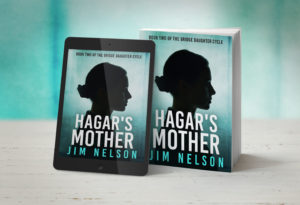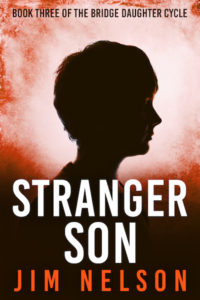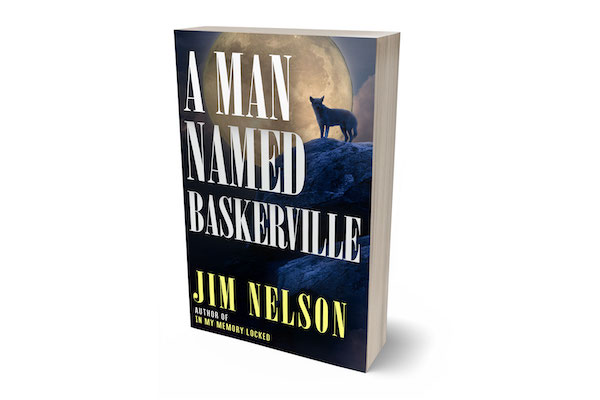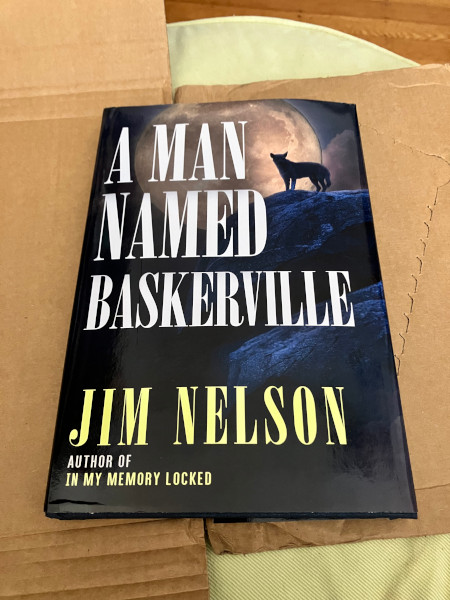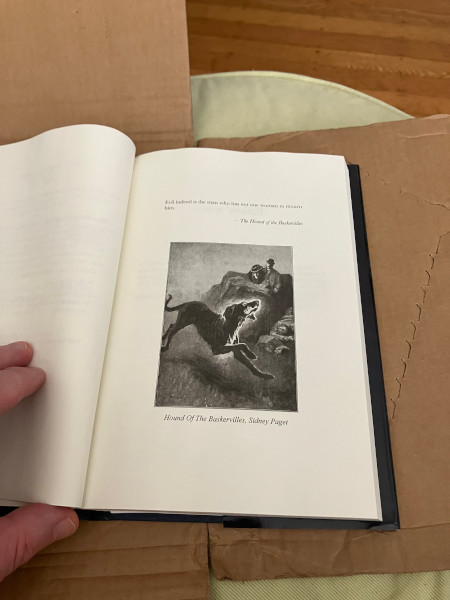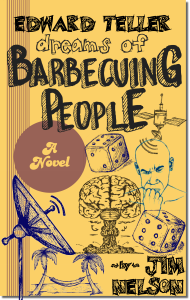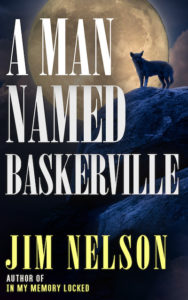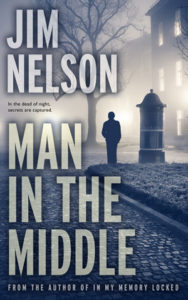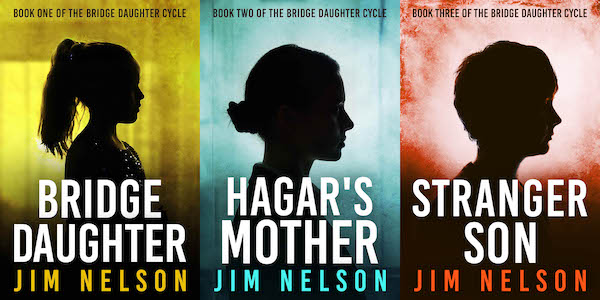Last time I wrote about publishing my back catalog on Kobo and making all my older books nonexclusive to Amazon. This is called “going wide” in independent publishing circles. I mentioned I had been meaning to do this for some time, but kept putting it off. If you’re wondering why, it involves a ten-year backstory about my rocky relationship with non-Amazon distributors.
My first push toward independent publishing came from attending the 2014 AWP Conference & Bookfair in Seattle. Amazon was all over the conference, hosting multiple round table talks on Kindle publishing, seminars on how to publish on their platform, and handing out free CreateSpace print-on-demand samples. Although mildly skeptical, I returned home convinced it was worth an experiment or two.
The first book I published on Amazon’s Kindle Direct Publishing was A Concordance of One’s Life. It’s a short story collection—essentially my MFA thesis put into book form. I had zero expectations of big sales or shooting up the bestseller list. If things went pear-shaped, I lost little.
The process was amazingly smooth. I slapped together a passable cover using photos from my phone. I published it on Amazon with ease, and lo, my first book was available. Sales were in the single digits. That’s fine, it was a start. My San Francisco novella Everywhere Man soon followed.
In 2014, it seemed natural that I should publish my books everywhere I could, and I began researching other options. Smashwords was my first stop.
Smashwords is an old-timer in the e-publishing sector, predating even Amazon (I believe). Its founder is an e-publishing evangelist who even e-published his own book to spread the good word. Unlike Amazon, which has quality standards they expect authors to follow, Smashwords accepts anything: Word documents, crappy PDFs, even plain text files. If it could be read, Smashwords wanted to host it.
This meant, of course, that my books were side-by-side with some truly awful options, both in terms of writing quality and reading comfort. The site’s layout was archaic, and had few options for book discovery.
What’s more, Smashwords offered no easy way to read the books or documents you downloaded. Amazon had free Kindle Reader apps and a Kindle standalone handheld device. Both automated buying, downloading, and reading books. With Smashwords, the reader was on their own.
Sales on Smashwords were nearly zero. The only way I was going to get people to find my books there was to spread links to Smashwords myself. If I was going to do that, I would rather send them to Amazon, which made it far easier to load my ebooks on a Kindle reader. For years I offered my first two ebooks for free on Smashwords. It made no difference in downloads.
I also tried Barnes & Noble. Unlike Amazon and Smashwords, B&N was immensely unfriendly in 2014 and reluctant to deal with an independent writer. They went so far as requiring me to file for a B&N vendor ID, which was the same ID used for selling goods in their physical stores, from books to candy to stuffed animals. I managed to get my first two ebooks up on their web site, but like Smashwords, they offered no way to make my books known to their browsing customers. What’s more, their Kindle-like handheld reader (“Nook”) was overly expensive, underpowered, and did not sell well.
Next came Apple Books. Like B&N, they were also reluctant to deal with independent writers. They made establishing a publisher account feel like I was dealing with a bureaucrat who could not stop rolling his eyes as I filled out the form. Worse, they don’t support buying a book on the Web—you had to launch their Books iPhone or iPod app to search the Apple Store. And, like the others, there was almost no way to get my books in front of people who might be searching for a title like my own.
That’s when I got to Kobo’s Writing Life, which is Kobo’s e-publishing system. Kobo was far more welcoming than Apple and B&N. Publishing books was almost easier than Amazon’s KDP. They offered resources for writing and editing their books, and links to print-on-demand publishers if I wanted to offer a paperback on their site.
Like the other non-Amazon platforms, though, discovery was again a problem. Once more, it was upon me to spread links to my Kobo pages far & wide so readers could find my books. And, I don’t believe Kobo at that time offered an ebook reader of their own, leaving readers on their own to load their purchased selections on a reader. (I might be mistaken about this last point, however.)
Ten years on
Reviewing these options over ten years later, it’s remarkable how little has changed.
Kobo remains the best of the non-Amazon bunch. Their publishing system is similar to the 2014 experience, but it was always easy to use and navigate, so I’m fine with that. It still has its publishing resources list, and its book details pages (where a reader can examine the book before buying) look about the same as before.
B&N learned their lesson the hard way and made publishing books on their web site much, much friendlier. Their publishing portal operates much like Kobo’s now, and it appears it’s easier for a new writer to sign up. Smashwords was sold to Draft2Digital, but the web site stands more or less as it was when I first logged in. Apple remains a cold and unfriendly business partner.
The biggest remaining problem with these platforms? Discovery. I’ve used the word a few times already. Let me explain what it means in this context.
If you go to the home page for any of these booksellers, you are presented with bestsellers and new books and old standbys from the Big Four publishers—Penguin Random House, Macmillan, Hachette Book Group, and HarperCollins, and their numerous imprints. While Amazon also gives these big-name (and high-paying) publishers lots of screen real estate, you will also find titles from independent authors mixed in, especially on their Top 100 lists for the various genres: Westerns, science-fiction, biography, and so forth. Not so with the other platforms.
Amazon also offers independent authors the ability to advertise their books. Advertising can be set up a few different ways, but it’s usually a per-click price auction. The author gets to decide what search terms or what kind of content the ad should be placed near. This is an amazing way to let readers know of your work.
Per-click advertising is unavailable on the other platforms. Kobo toyed with the idea, but never followed through.
Likewise, Amazon will advertise your book—for free—through “Others bought these similar books” and “Suggested titles” lists it shows on book detail pages. This is another great way for readers to discover new books—if someone enjoys cyberpunk, it’s likely they’ll at least want to know about my take on the genre.
The other platforms only offer a “More titles by this author” on a book page. That’s it. Worse, this feature is broken, and has been broken for over ten years. Here’s why.
Amazon has a concept of author pages, where a writer can group their titles under their name and biographical blurb. It’s sort of like a bookshelf of all the author’s works. That’s why you can click the link to my name on any of my book pages and go right to my Amazon author page.
None of the above platforms—including Kobo—have such a concept. Their “More titles by this author” lists are nothing more than a lazy search of all books on their site with the same author name. When you have a name as common as “Jim Nelson,” that means books by complete strangers are presented as mine.
This was annoying, but forgivable, in 2014. It’s maddening in 2025.
I wrote Kobo support about this in 2021. As with per-click advertising, they said author pages were something “we are looking into the possibility for the future.” They’ve yet to follow through. Remember, their systems know which books are mine—I uploaded them to their servers through a single account! Yes, things get more complicated when a single author has multiple publishers, but that doesn’t excuse using a simple keyword search to locate an author’s books.
Year after year, Amazon has listened to independent authors and improved their publishing system to accommodate our needs. Is it perfect? Not in the least. But I do see a continuous process of refinement unseen on the other platforms. That demonstrates to me a level of commitment the others are not making.
I’m not here to tell you that Amazon is a wonderful company. You may have real issues with their size, their sales model, their profits, their international scope, their practices, or their founder’s politics. I won’t argue with any of that.
But for ten years now, Amazon has treated me more like a business partner than any other publishing platform out there. Not a peer, perhaps, but at least a partner of sorts.
That’s an awful lot of grumbling on my part. Why move my books to Kobo now?
My Kindle Unlimited page reads have dropped considerably in the past two years. Sales have dropped too. I don’t write the kind of books that move big numbers of copies. That throne is currently held by romance, fantasy, and hard science-fiction multi-volume series, with lots of battles and excitement, and plenty of sex and plunder. I prefer standalone novels centered around one or two characters, and stories with a solid beginning, middle, and end.
On the advertising front, the booming Kindle publishing market has brought with it inflated per-click prices. I’m seeing $2+ per-click(!) auction prices for certain high-value, high-margin book categories, a price I’m unwilling to pay, since a click is no guarantee of a sale.
With my back catalog having a harder time finding an audience, it’s time to expand their availability, especially since I’ve learned that folks in Commonwealth nations seem to prefer Kobo.
I’m happy to oblige.
